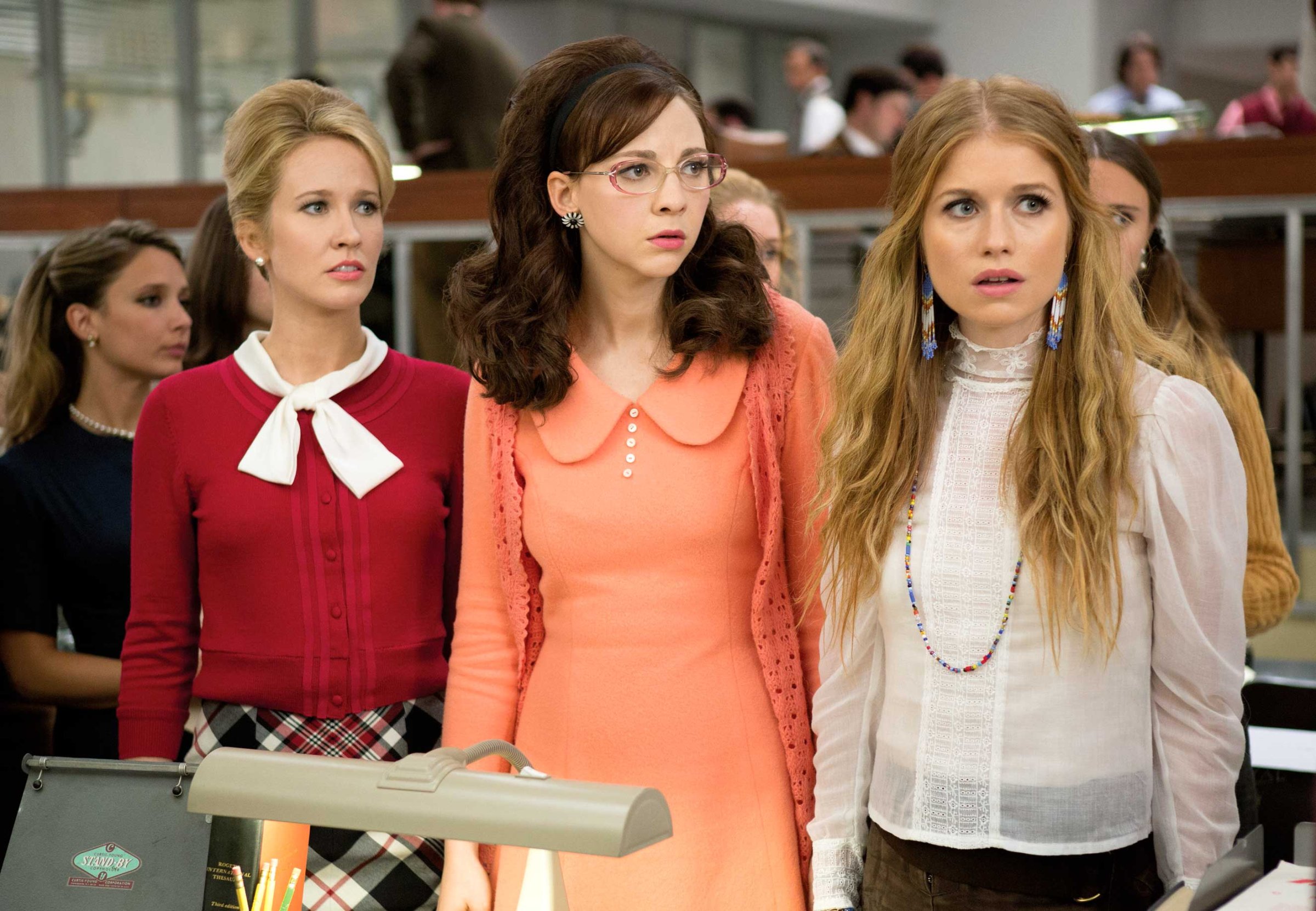
They were highly educated women, some graduates of Ivy League journalism programs. But at Newsweek magazine in the 1960s, they delivered packages, cut out newspaper clippings and, if they were lucky, did reporting for articles that only men were actually allowed to write. They suffered the typical sexism of the Mad Men era–the researchers on the nation desk were called “the Dollies”–but they were also routinely barred from becoming writers and editors themselves. In 1970, the Dollies decided they were fed up. On the day Newsweek ran a cover story about the feminist movement, 46 of the magazine’s female employees filed a complaint with the Equal Employment Opportunity Commission (EEOC) claiming they were “forced to assume a subsidiary role” because of their gender.
Amazon has resurrected their insurrection in the new series Good Girls Revolt, based on a book of the same name by Lynn Povich, one of the women who joined the suit. The show, which premiered Oct. 28, takes small liberties to deliver larger truths. In the first episode, Nora Ephron (played by Grace Gummer, daughter of Ephron pal Meryl Streep) quits the fictionalized News of the Week when an editor tells her women cannot write stories. In reality, Ephron quit years before the suit, pursuing a goal ahead of its time. “In school most of us were told that we’re bright, we’re capable. But the word career was never spoken,” says Povich.
When they realized Newsweek’s hiring practices were illegal, the women began to envision careers as writers. They recruited colleagues to their cause in the women’s bathroom and solicited advice from Eleanor Holmes Norton, an attorney who is now in Congress. “You gotta take off your white gloves, ladies,” Norton told them, according to Povich’s book. “You goddamn middle-class women–you think you can just go to Daddy and ask for what you want?”
In the show Genevieve Angelson plays the fictional researcher Patti, who leads the movement. “Lynn’s was a generation of activism. My generation takes that for granted,” says Angelson. “Imagine the self-confidence it takes to envision a future for yourself that you don’t know you can achieve.”
After two lawsuits Newsweek promised that by the end of 1974, one-third of the magazine’s writers would be women. Povich went on to become the first female senior editor at the magazine–though initially with a lower salary than her male colleagues. Equal pay continues to be an issue. A 2012 Indiana University study found the median salary for women journalists was 17% lower than for men.
The show feels particularly timely in the wake of sexual harassment complaints against ex–Fox News CEO and onetime Donald Trump adviser Roger Ailes, and the candidate himself. “The fact that our election is dominated by these issues is horrifying, but it’s also good we’re talking about it in public,” says Povich. “The timing seems so propitious.”
More Must-Reads From TIME
- The 100 Most Influential People of 2024
- The Revolution of Yulia Navalnaya
- 6 Compliments That Land Every Time
- What's the Deal With the Bitcoin Halving?
- If You're Dating Right Now , You're Brave: Column
- The AI That Could Heal a Divided Internet
- Fallout Is a Brilliant Model for the Future of Video Game Adaptations
- Want Weekly Recs on What to Watch, Read, and More? Sign Up for Worth Your Time
Write to Eliana Dockterman at eliana.dockterman@time.com